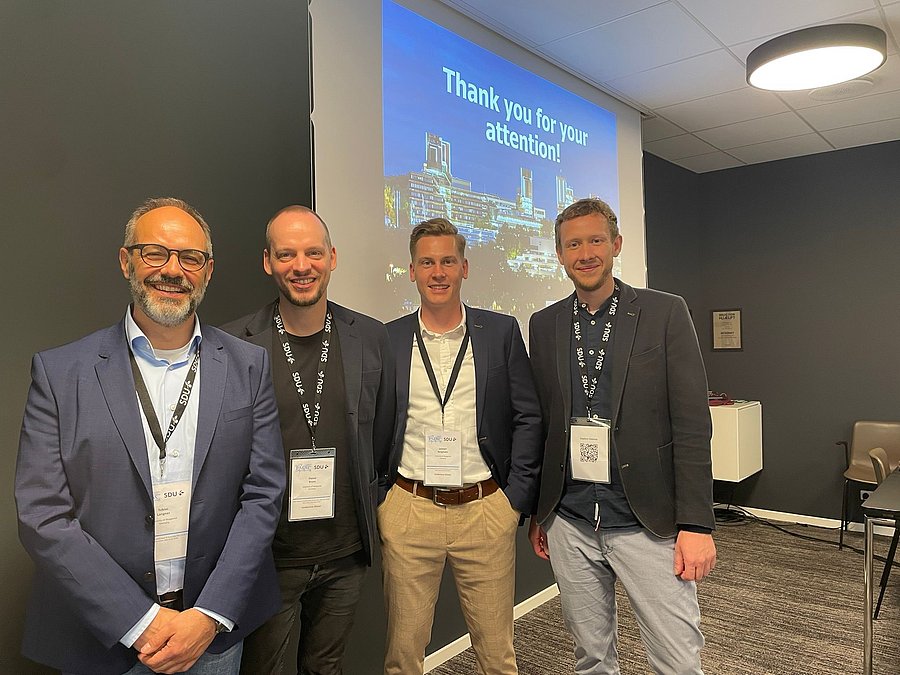Erfolgreiche Präsentationen auf der Konferenz der European Marketing Academy (EMAC) 2023 in Odense, Dänemark

Julian Felix Kopka, Lennart Borgmann und Tobias Langner (May I Have Your Attention Please? A Mobile Eye-Tracking Study on the Effectiveness of Advertising Attention Tactics in Real-Life Media Encounters) sowie Tobias Langner, Daniel Bruns und John R. Rossiter (How to Successfully Design Suggestive Brand Names: An Integrated Psycholinguistic Framework) haben auf der diesjährigen Konferenz der European Marketing Academy (EMAC) in Odense ihre Forschungsbeiträge erfolgreich präsentiert.
Die Konferenz der EMAC ist eine der bedeutendsten Marketingforschungskonferenz weiltweit und findet jährlich an wechselnden Ausrichtungsorten statt.
May I Have Your Attention Please? A Mobile Eye-Tracking Study on the Effectiveness of Advertising Attention Tactics in Real-Life Media Encounters - Abstract:
Drawing consumers’ attention to advertising is the greatest challenge for advertisers. Research on ad reception based on real-life observation and eye-tracking is critical to understand attention allocation, but rare. We focus on attention tactics, drawn from leading advertising textbooks, a systematic journal review, and qualitative interviews with consumers. We differentiate two types of tactics, those to gain attention and those to hold it. We test their effects using mobile eye-tracking in 60 consumer homes. The tactics’ success for gaining and holding attention varies: Size draws initial attention, as do the color red and faces and eyes, but other striking color schemes and pictorial elements hinder it. Color, sound, and video show no effect. For holding attention, influencers, testimonials, and emotional scenes exert positive effects, but celebrities, children, babies, humor, and video have no impact. Erotic stimuli and faces and eyes show negative effects for holding attention.
How to Successfully Design Suggestive Brand Names: An Integrated Psycholinguistic Framework - Abstract:
Selecting an appropriate brand name is vital to market success. New brand launches are most effective when they use brand names that quickly communicate the brand’s key benefit. In the present paper, we propose a framework based on three psycholinguistic models of conceptual combinations that help marketers design suggestive brand names. Three experiments affirm that all models support the conveyance of the key benefit but they differ in effectiveness and efficiency: overall, brand names based on selective modification perform best, followed by property mapping, then relation linking. Moderation analysis further reveals that effective key benefit conveyance through these models is differently impaired when consumers face limited processing opportunities. Moreover, brand name understandability mediates the models’ effects on consumers’ attitudes toward the brand name. Finally, the attitudinal effects apply beyond the brand name level to overall brand attitudes at the corporate level.

